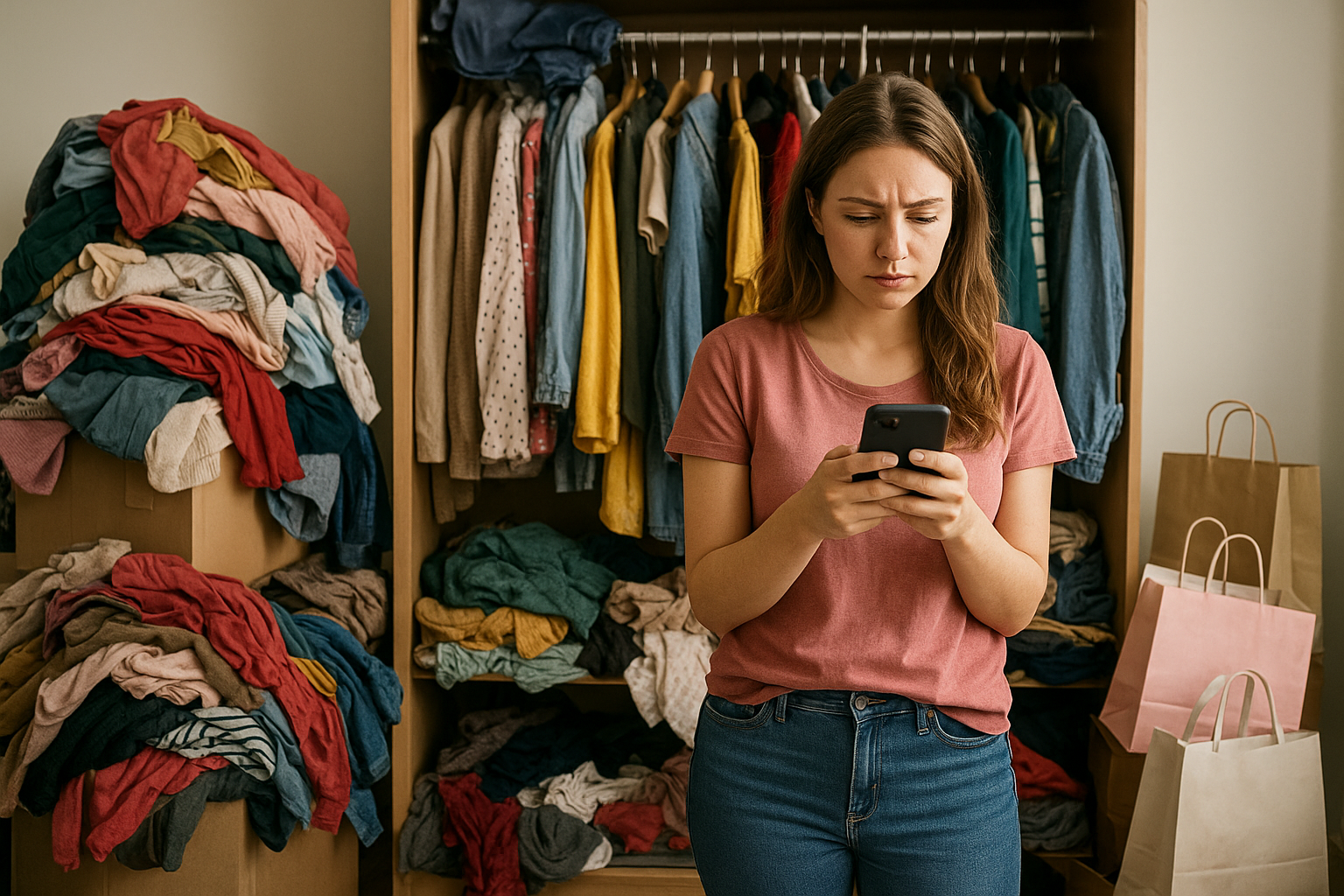When Students Become Voices for Change: Erin M.’s Project on Social Media and Overconsumption
Share

At Overconsumption.org, we believe that the next generation holds the power to shape more mindful, sustainable futures. Few examples embody this as clearly as the independent research project completed by Erin M. from Cabra Dominican College.
Her project explores how social media platforms, influencers, and fast-changing online trends drive modern consumerism, and more importantly, how young people can resist the pressure to constantly buy more.

Erin’s Research Journey
As part of a research-based subject where students design and carry out their own independent projects, Erin chose to investigate the powerful connection between algorithms, identity, and consumption.

Her project is structured as a digital booklet titled:
“Scrolling, Shopping, and Social Media: How Social Media Contributes to Modern Consumerism”

The booklet covers:
- Platforms and Algorithms – How engagement data determines what we see, subtly shaping our buying impulses.
- Influencers – How trust in creators fuels sales and creates aspirational lifestyles.
- FOMO & Identity – How fear of missing out and comparison affect teenagers’ self-image.
- Micro-trends – How fashion and product trends now rise and fall within weeks.
- Financial Strain – The hidden cost of impulse purchases.
- Environmental Impact – The role of fast fashion and disposable trends in worsening waste and pollution.

Erin in Her Own Words
In her final reflection, Erin wrote:
“This project has shown me how deeply social media shapes modern consumer culture—not just in the products we buy, but in how we view ourselves, our identities, and even our future. But more importantly, I’ve learned that awareness leads to action. By recognising the hidden costs of overconsumption, we can make smarter choices for ourselves and our communities.”

She also expressed gratitude to Overconsumption.org:
“A special thank you to Overconsumption.org for their generous feedback and guidance on my research and the creation of this booklet, and for showcasing it on their platform. Their expertise helped me strengthen my findings and gave me valuable insight into social media consumer culture for which I am very grateful.”
Practical Solutions
What makes Erin’s work stand out is not only her critical analysis but also her practical tips for teenagers navigating social media culture, such as:
- Waiting 48 hours before non-essential purchases.
- Unfollowing influencers who fuel unnecessary spending.
- Asking: Do I need this, or do I just want this?
- Tracking spending habits.
She also highlighted inspiring global movements such as:
- Fashion Revolution – calling for transparency in supply chains.
- The Buy Nothing Project – encouraging local sharing economies.
- Good On You App – empowering consumers to choose ethical fashion.
Why This Matters for Young People
Social media is one of the strongest forces shaping young people’s identities today. Erin’s research shows how quickly harmless scrolling can turn into buying pressure, debt, or even environmental harm.
By connecting personal stories, psychology, and global data, she demonstrates the importance of critical thinking in resisting consumer culture.

Celebrating Cabra Dominican College
Projects like Erin’s are possible because schools like Cabra Dominican College foster an environment where students are encouraged to explore, question, and think independently.
By supporting research-based projects, Cabra empowers students to combine academic skills with real-world issues—equipping them not only for exams but for the future.

Download Erin’s Full Project
📥 Click here to download Erin M.’s booklet (PDF)
We encourage everyone—students, teachers, and parents—to take a look at Erin’s thoughtful and creative work. It’s a resource that speaks directly to the challenges of growing up in a hyper-digital consumer culture.
Closing Thoughts
Erin’s project is more than just a school assignment, it’s a call to action for young people to slow down, question what they see online, and make mindful choices.
We hope her example inspires many others to research, create, and challenge the world around them.

